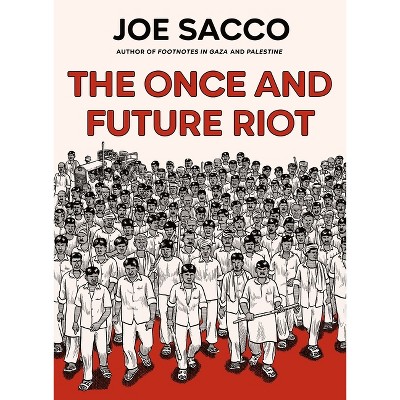Sponsored

We Are Not Able to Live in the Sky - by Mara Kardas-Nelson
$22.49Save $1.50 (6% off)
In Stock
Eligible for registries and wish lists
Sponsored
About this item
Highlights
- Shortlisted for the J. Anthony Lukas Prize A deeply reported work of journalism that explores the promises and perils of microfinance, told through the eyes of international lenders and women borrowers in West Africa In the mid-1970s, Muhammad Yunus, an American trained Bangladeshi economist, met a poor female stool maker who needed money to expand her business.
- About the Author: Mara Kardas-Nelson is an independent journalist focusing on international development and inequality.
- 400 Pages
- Social Science, Developing & Emerging Countries
Description
Book Synopsis
Shortlisted for the J. Anthony Lukas Prize
A deeply reported work of journalism that explores the promises and perils of microfinance, told through the eyes of international lenders and women borrowers in West Africa In the mid-1970s, Muhammad Yunus, an American trained Bangladeshi economist, met a poor female stool maker who needed money to expand her business. In an act widely known as the beginning of microfinance, Yunus lent $27 to forty-two women, hoping small credit would help the women pull themselves out of poverty. Soon, Yunus's Grameen Bank was born, and the idea of giving very small, high-interest loans to poor people took off. In 2006, Yunus and the Grameen Bank won the Nobel Peace Prize for "efforts to create economic and social development from below." But there's a problem with this story. There are mounting concerns that these small loans are as likely to bury poor people in debt as they are to pull them from poverty, with borrowers from India to Kenya facing consequences such as jail time and forced land sales. Reportedly hundreds have even committed suicide. What happened? Did microfinance take a wrong turn, or was it flawed from the beginning? Mara Kardas-Nelson's We Are Not Able to Live in the Sky is about unintended consequences, blind optimism, and the decades-long ramifications of seemingly small policy choices. The book is rooted in the stories of women borrowers in Sierra Leone, West Africa. Their narratives, woven through a deep history of modern international development, are set against the rise of Yunus's vision that tiny loans would "put poverty in museums." Kardas-Nelson asks: What is missed with a single, financially focused solution to global inequity that ignores the real drivers of poverty? Who stands to benefit and, more important, who gets left behind?Review Quotes
Shortlisted for the J. Anthony Lukas Prize
"[R]evealing . . .vivid . . . a deeply reported history of how the microfinance industry was created and where it went wrong. . . remarkable."--The New York Times "[An] eye-opening debut exposé . . . Kardas-Nelson's crisp characterizations and novelistic storytelling bring clarity to a sprawling, shadowy history. The result is a devastating look at a disaster set into motion by misguided American policymakers."
--Publishers Weekly (starred review) "Through a dazzling, superbly paced combination of astute history and on-the-ground observation in Sierra Leone, West Africa, Mara Kardas-Nelson holds the claims of microfinance up to the light. I wish that every new idea touted as the solution to the world's problems had such a thoughtful and compassionate examination."
--Adam Hochschild, bestselling author of American Midnight and King Leopold's Ghost "What happens to money loaned to extremely poor people? Who gains and who loses? In her exhaustively researched tour de force, Mara Kardas-Nelson explodes myths - in some cases, lies - bringing tough truths to microfinancing, high-interest loans, and even the Nobel Prize. We Are Not Able to Live in the Sky should be mandatory reading for everybody looking for solutions to extreme poverty."
--Laurie Garrett, Pulitzer Prize-winning author of Betrayal of Trust: The Collapse of Global Public Health "This powerful chronicle traces the global rise and possible fall of microlending. . . We would all do well to heed her reminder that 'distilling deeply complicated problems into bite-size solutions is a great way to make a big mess, often without meaning to.'"
--Wall Street Journal "By turns a fascinating global history of micro-credit and a haunting account of its effects on a handful of women in Sierra Leone, We Are Not Able to Live in the Sky traces the rise, fall and afterlife of an industry built on neoliberal fantasies, on the preening of powerful poseurs, and on the backs of millions of desperate people."
--James K. Galbraith, The University of Texas at Austin and author of Inequality: What Everyone Needs to Know "Mara Kardas-Nelson has written a superb, layered, riveting book everyone should read. She takes us inside the minds of architects of microfinance programs who spent decades standing behind their inventions and the women whose lives are endlessly challenged by those programs, considering the forces and mechanisms that conspire against them and inviting us to imagine how it could be different across the world. We Are Not Able to Live in the Sky reminds us that well-intentioned is not the same as imaginative or aspirational when it comes to building systems to accompany others out of poverty."
--Ophelia Dahl, cofounder, Partners in Health "As global inequality grows and grows, this absorbing book offers a detailed look at how and why proposed solutions to poverty take off, even as significant flaws that may in fact entrench inequality are overlooked. It shows the danger of an over-simplified story, and examines how so-called assistance for the world's poorest people can have serious and life-changing consequences"
--Sally Hayden, author of My Fourth Time, We Drowned "A keen examination of the rise and fall in popularity of the microfinance loan system... This thoughtful deep dive into the world of microfinance is both educative and heartbreaking."
--Kirkus "With the brisk pacing of investigative journalism, Mara Kardas-Nelson's revelatory We Are Not Able to Live in the Sky: The Seductive Promise of Microfinance probes the perils and promises of microfinance for women in developing countries... reveal[ing] the often heartbreaking human dimensions of international monetary policy."
--BookPage
About the Author
Mara Kardas-Nelson is an independent journalist focusing on international development and inequality. Her award-winning work has appeared in The New York Times, The Nation, NPR, The Guardian and elsewhere. Mara has also spent years working in global health. Originally from the U.S., she has also lived in Canada, South Africa and Sierra Leone. Her time in different parts of the world informs the questions she asks, and how she frames her stories.Dimensions (Overall): 8.25 Inches (H) x 5.38 Inches (W) x .99 Inches (D)
Weight: .87 Pounds
Suggested Age: 22 Years and Up
Number of Pages: 400
Genre: Social Science
Sub-Genre: Developing & Emerging Countries
Publisher: Metropolitan Books
Format: Paperback
Author: Mara Kardas-Nelson
Language: English
Street Date: June 10, 2025
TCIN: 93213204
UPC: 9781250364678
Item Number (DPCI): 247-47-2294
Origin: Made in the USA or Imported
If the item details aren’t accurate or complete, we want to know about it.
Shipping details
Estimated ship dimensions: 0.99 inches length x 5.38 inches width x 8.25 inches height
Estimated ship weight: 0.87 pounds
We regret that this item cannot be shipped to PO Boxes.
This item cannot be shipped to the following locations: American Samoa (see also separate entry under AS), Guam (see also separate entry under GU), Northern Mariana Islands, Puerto Rico (see also separate entry under PR), United States Minor Outlying Islands, Virgin Islands, U.S., APO/FPO
Return details
This item can be returned to any Target store or Target.com.
This item must be returned within 90 days of the date it was purchased in store, shipped, delivered by a Shipt shopper, or made ready for pickup.
See the return policy for complete information.












